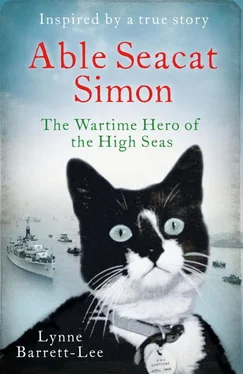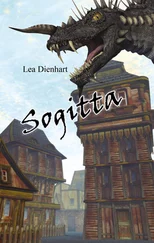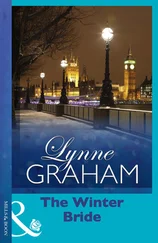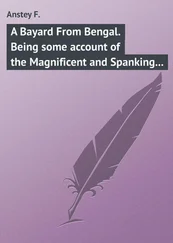There really wasn’t much to see, even with my excellent vision. Just the oily, lapping blackness of the river, the silhouetted shores – raggy and lace-like against the moonlit night sky – and the odd moth and winged beetle, flying low over the water, and – hang on! I craned my neck further. Wait – I could see something!
And so, evidently, could the captain. ‘Good Lord!’ he said to Hett, who was also peering through his binoculars. ‘See that, Number One? It’s only another ship! What the devil?’
They both lowered their binoculars, then raised them again. ‘Seems we have our pilot after all, eh?’ said the captain. Then he leaned towards the voice pipe to his right. ‘Slow ahead port engines,’ he commanded, his voice taut with tension. ‘Wheel amidships. Black smoke.’ The Amethyst responded. We were finally underway.
Everyone seemed to hold their breath at that point, it seeming a miracle that we could ever be so lucky. Because the presence of this other vessel was good news indeed. The captain’s biggest concern – which he had voiced only an hour earlier – was whether a big frigate such as the Amethyst would be able to safely negotiate the deep water channel in the middle of the river without a pilot. One slip-up and we could so easily run aground on the bank again. So the arrival of this other ship – which was strung with lights, and soon identified as a merchant ship called the Kiang Ling Liberation – felt like the best omen possible.
‘Five degrees starboard,’ Captain Kerans ordered, his binoculars following the merchant ship. ‘We’ll drop astern of her and follow her through instead.’
This was it, I realised, my whole body tensed in anticipation. After all these long weeks in captivity, we were finally doing it! We were making our escape!
Or, at least, trying to. Every second seemed to pass agonisingly slowly as inch by inch the Amethyst moved through the dark water. With our smoke belching aft now, the night felt even darker, the river’s shores blacker mounds in the distance. No one on the bridge said a word, but I knew every last man on board was silently waiting for the same thing to happen; for the moment when the communists saw us and began blasting us out of the water. Destroying us, just as they’d promised they would.
But it seemed the blanketed anchor and greased chain had done the job the captain wanted, and as we began to slice along behind the Chinese merchant vessel, the blackout sheeting seemed to be doing its job too, evidently making the Amethyst all but invisible to the batteries, just as Captain Kerans had hoped it would.
No such luck for the Kiang Ling Liberation . No sooner had we slipped alongside her, hidden now from view, than the shore was suddenly alive with activity.
‘They’re firing!’ the captain shouted, above the roar of shell fire and machine guns. ‘They’re firing at her ! What the devil?’
And it seemed they were. The big merchant ship, already lit by its gay strings of lightbulbs, was now even more ablaze – with orange licks of leaping, murderous flame.
‘What the devil ?’ the captain said again, his binoculars at his face again. ‘You see that, Hett? What the devil’s going on over there?’
I stood transfixed; paralysed now, both with fear and consternation, hearing distant shouts and cries as the Kiang Ling ’s crew ran for cover; as the shells pounded against her, above and around her. Yet still we moved, following the same line as the stricken, flaming vessel. A minute passed. Five minutes. Ten minutes. More. Until she slowed, fully ablaze now, and we began to nose ahead of her, away from the batteries, away from Kang, away from the shells and the bullets, incredibly, astoundingly, unbelievably unscathed.
‘Looks like we’ve got away with it so far,’ said Lieutenant Strain. He sounded as stunned as everyone felt.
Captain Kerans raised his binoculars again, peering back from where we’d come. The merchant ship seemed to have been run aground now, as well. ‘Yes,’ he conceded, ‘it does indeed, doesn’t it?’ He lowered his binoculars, and his expression was at odds with the calm way he’d spoken. ‘Those gunners on the shore must have been asleep.’
But even as he said it, the words were true no longer. No sooner had he finished speaking than new explosions broke the stillness, and the sky above the Amethyst was alive with flares.
‘Hard astern!’ ordered the captain. ‘Perhaps we haven’t got away with it after all. It looks like there’s a patrol boat coming to meet us!’
But then something else inexplicable happened – it began firing not on us , but at the shore battery that had sent all the flares up – which made no sense at all. Had the darkness and disguise really confused them that much?
‘Well I never!’ exclaimed Hett, newly stunned. ‘What’s all that about?’
‘Not an earthly,’ the captain admitted, as the shore battery returned their fire. ‘B gun, open fire! Might as well add to the confusion, eh?’
By now it seemed nothing was making sense. I jumped down from my station on top of the electrical box, and prudently took up a lower one below it. Keen as I had been to see as much as I could of the action, the words ‘sitting duck’ were now again fresh in my mind, and as the fizzing balls of light winged their way over and around us, I felt glad of the protection and security of the bulkhead. As my paws hit the corticene, I realised I was shaking all over. Was the captain shaking too? Was Lieutenant Hett? Lieutenant Strain?
If they’d not been up before then, then they certainly were now. No sooner had we passed the smoking hulk of the Chinese merchant ship than an enormous explosion at the bow of the Amethyst almost knocked all three officers off their feet.
The captain grabbed the windscreen and regained his balance. ‘They’ve found us!’ he barked then, to the voice pipe, to Jack. ‘Message to C in C. I am under heavy fire and have been hit! ’ He then sent orders for our remaining four-inch gun to open fire, and moments later, I knew from the reassuring vibration beneath my belly, that we were now travelling down the Yangtse at full speed. More than full speed, in fact. A whopping 22 knots, according to the engine room – faster than the Amethyst was supposed to even be capable of. But like a cat with a dog on its tail, she gave her all. She really was running for her life – and for ours – after almost three and a half months of captivity.
Not that it was plain sailing from then on. We sailed downriver without incident till long after midnight (Captain Kerans even found time to pull me from my safe place and reassure me, presumably thinking I was a great deal more stressed than I was by this time). Then, on approaching the shore batteries at Kiang Yin at 01:00 hours, he realised another substantial obstacle lay in our way: the make-shift defensive boom the communists had stretched across this part of the river, made up, the captain explained to Lieutenant Hett, from sunken merchant ships from an earlier war. Almost impossible to make out in the darkness, bar a few broken masts, it only allowed safe passage though a narrow stretch midstream.
We approached the boom, the Amethyst a deeper dark within the dappled dark of moonlight. It soon became clear that the passage – which would normally be marked on either side by guide lights – would not be very safe to negotiate after all, as only one of the two lights was lit.
There was a tense silence as the officers strained to make out some detail in the blackness that might help guide the ship through the channel. ‘Port or starboard?’ asked the captain finally. ‘Which way do you think, Number One?’
Читать дальше












